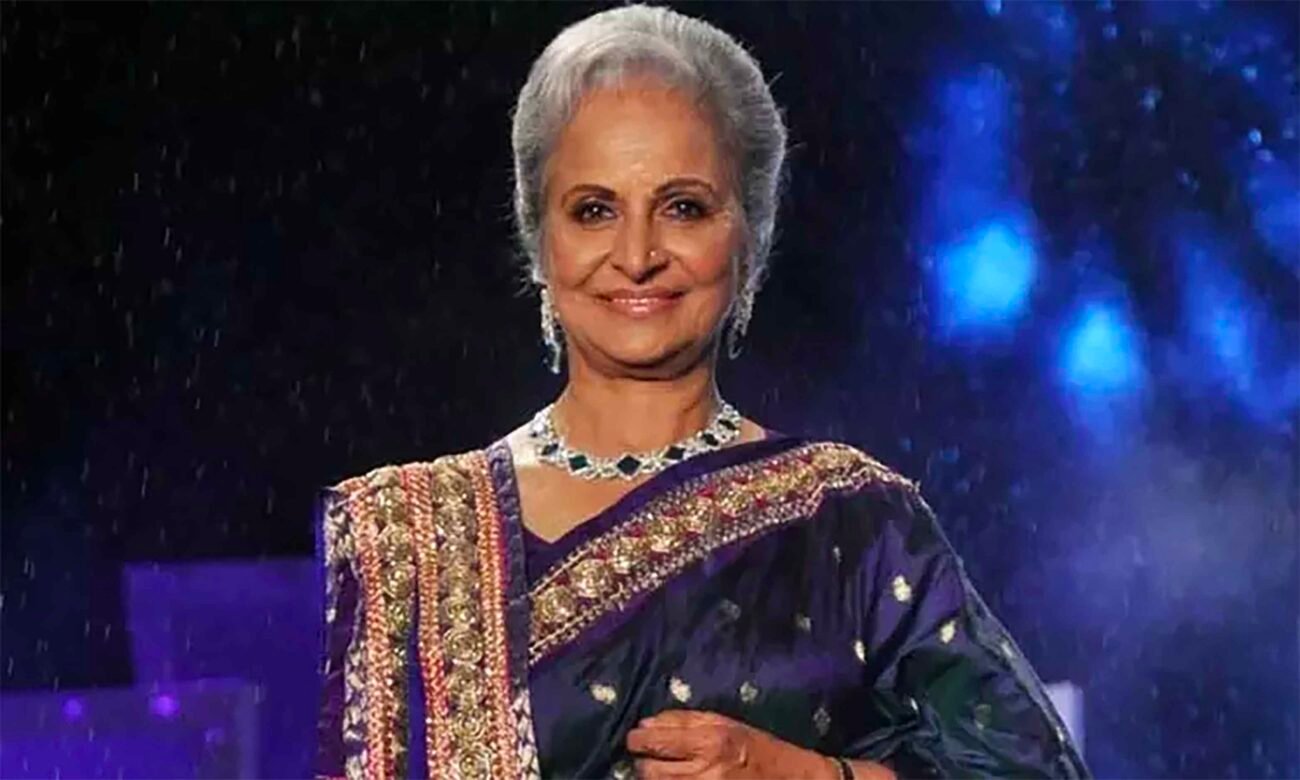Waheeda Rehman Named As Dadasaheb Phalke Recipient
NEW DELHI (IANS) – Veteran actress and dancer Waheeda Rehman, who is known for films like ‘Guide’, ‘Pyaasa’, ‘Sahib Bibi Aur Ghulam’, ‘Delhi-6’, ‘Kaagaz Ke Phool’ and several others, is being honored with the Dadasaheb Phalke Lifetime Achievement Award for her immense contribution to Indian cinema.
The actress has played countless memorable characters on the celluloid and is known to be the pillar of Indian cinema with a career spanning almost seven decades.
The 85-year-old veteran actress made her film debut with the Telugu film “Rojulu Marayi” (1955), ….and rose to prominence with her association with filmmaker Guru Dutt: the romantic dramas “Pyaasa” (1957) and “Kaagaz Ke Phool” (1959), the musical romance “Chaudhvin Ka Chand” (1960) and the drama “Sahib Bibi Aur Ghulam” (1962).
Rehman also had success with the romantic drama “Guide” (1965), for which she won the Filmfare Award for Best Actress.
She won the award again for her performance in the romantic thriller “Neel Kamal” (1968), and additionally earned nominations for her roles in the comedy “Ram Aur Shyam” (1967) and the tragic drama “Khamoshi” (1969).
For portraying a clans woman in the crime drama “Reshma Aur Shera” (1971), she won the National Film Award for Best Actress.
Since the early 1970s, Rehman has worked primarily in supporting roles, appearing in the romantic dramas “Kabhi Kabhie” (1976), “Chandni” (1989) and “Lamhe” (1991), the family drama “Trishul” (1978), the social drama “Namkeen” (1982), the masala films “Namak Halaal” (1982) and “Mashaal” (1984), and the social dramas “Rang De Basanti” (2006) and “Delhi 6” (2009).
In 1994, she was honored with the Filmfare Lifetime Achievement Award, and she has since worked sporadically.
A mass favorite of Waheeda’s films will certainly be “Khamoshi”. It was shot in Calcutta and was based on the Bengali short story titled “Nurse Mitra” by noted Bengali writer, Ashutosh Mukherjee and is a remake of director Asit Sen’s own Bengali film, “Deep Jwele Jaai” (1959), starring Suchitra Sen.
It’s a story with tragic/melancholic end and both the actresses – gorgeous Suchitra Sen and Waheeda Rehman did well in the film — not as simple stars but giving flesh and blood to the character of the protagonist ‘nurse’ in a mental asylum.
Waheeda Rehman was polite and humble and she later said, her own performance came “nowhere near that of Suchitra Sen in the original.” She credited the director for helping her a lot during difficult scenes. Rehman said in an interview that she could not meet the standards set by Savitri in “Chivaraku Migiledi” (1960) for the character.
“Kaagaz Ke Phool” had a different story for itself. It was a box office bomb in its time owing to its theme which the masses could not identify with. But the film was later hailed as a cult classic.
Its failure, both critically and commercially, severely impacted Guru Dutt and brought his studio on the verge of ruin. Guru Dutt never officially directed a film after this. The film’s music was composed by S. D. Burman and the lyrics were written by Kaifi Azmi and Shailendra (for one song).
The song ‘Waqt Ne Kiya Kya Haseen Sitam’ (meaning — What a pleasant painful agony brought by the time) remains a classic of its own both for the music and the poetry.
Today ‘Kaagaz ke Phool’ is a part of syllabi in many film schools. It is considered to be the finest self-reflexive film to have ever been made in India.
According to many, the Amitabh Bachchan-Shashi Kapoor starrer ‘Kabhie Kabhie’ owes its success largely to the matured performance of Waheed Rehman. ‘Kabhi Kabhie’ released in February 1976 and earned an estimated Rs 40 million at the box office, becoming the eighth-highest grossing Hindi film of the year.
Waheeda Rehman was honoured with Padma Shri (1972) and India’s third highest civilian award Padma Bhushan in 2011.






YCEE Arora
/
HATS OFF TO YOU WAHEEDA JEE FOR YOUR WONDERFUL PERFORMANCES
September 26, 2023